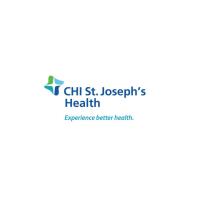|
|
Local Hospital Leaders Ask for Help to Stop Healthcare Cuts
Leaders from four local hospitals—Astera Health, CHI St. Joseph’s Health, Lakewood Health
System, and Perham Health—are speaking out. They are asking people in our communities to
talk to lawmakers about big budget cuts that could hurt rural health care.
These cuts to federal and state programs could have serious effects on hospitals in small
towns like Park Rapids, Perham, Staples, and Wadena. Hospital CEOs Joel Beiswenger (Astera
Health), Ben Koppelman (CHI St. Joseph’s Health), Lisa Bjerga (Lakewood Health System), and
Chuck Hofius (Perham Health) want people to know how these changes could hurt patients,
hospitals, and the entire community.
What is Medicaid?
Medicaid is a government program that helps people pay for healthcare. Each state runs its
own Medicaid program; in Minnesota it is called Medical Assistance.
How many people utilize Medicaid in our area?
● 18 percent of Astera Health patients
● 19 percent of CHI St. Joseph’s Health patients
● 20 percent of Lakewood Health System patients
● 14 percent of Perham Health patients
Who relies on Medicaid?
● Children and Families
● Pregnant Women
● Low-Income Working Adults
● Seniors and Individuals with Disabilities, including mental illness: Medicaid covers
long-term care services, including nursing home care, which are not typically covered
by Medicare.
From the mom of a child with cerebral palsy to the dad of three who was severely injured on
the job, thousands of stories are shared online for support of this program relied on by over
one million Minnesotans.
Why these cuts are a big problem
Federal budget cuts could take away over $1 billion in Minnesota's Medicaid funding each
year. This impacts healthcare coverage for 1.4 million Minnesotans. When people lose health
insurance, they skip regular checkups. Small problems then turn into big ones, and they end
up in the emergency room. This adds strain to doctors and nurses and makes wait times
longer for all patients needing emergency care.
Other Services at Risk
Minnesota has lost over $220 million in public health money in other government cuts this
year. This has led to people losing their jobs and fewer resources like tracking disease and
helping people with mental health needs. With additional cuts, programs that help people
who are already struggling will be ended.
Hurting the rural economy
The health systems in Park Rapids, Perham, Staples, and Wadena are the largest employers in
their communities. If they must cut staff, it will hurt local businesses too. The effects of lost
jobs in healthcare will have impacts such as lower school enrollment, less local property and
sales taxes collected, and lost sales for hometown businesses.
Impact on Patients
In rural Minnesota, Medicaid helps pay for care for about 20% of adults under 65, and 40% of
children. Rural families already struggle getting care. They often travel twice as far as people
in cities just to see a doctor. If Medicaid gets cut, these families may not be able to afford care
at all, especially for serious illnesses like diabetes, heart disease, and cancer.
Hospitals may need to cut services as well as delay improvement to equipment and
buildings. They will also stop hiring or layoff staff, which could impact the quality of care.
How the Community Can Help
● Stay Informed: Learn how these budget cuts affect your local hospital.
● Speak up: Call or email state and federal lawmakers. Ask them to protect healthcare
funding. Find your representative here: https://www.gis.lcc.mn.gov/iMaps/districts/
● Support Local Healthcare: Join community health programs and volunteer at your
local hospital.
The CEOs of Astera Health, CHI St. Joseph’s Health, Lakewood Health System, and Perham
Health are not just healthcare leaders—they’re your neighbors who deeply care about our
communities. These proposed cuts will hurt real people: our patients, families, and coworkers.
Now is the time to speak up to protect the healthcare our hometowns rely on.






